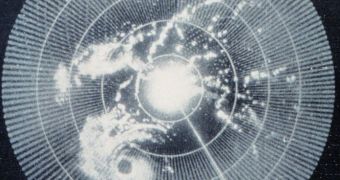The Russian Federal Space Agency's (RosCosmos) Phobos-Grunt spacecraft – which was launched on November 8 towards the Martian moon Phobos, but subsequently failed in Earth's orbit – may have been adversely affected by US radars, the conclusions of an investigation by Russian engineers show.
Interferences from a strong radar listening station in the Marshal Island may have been responsible for the spacecraft’s failure to fire up its main engine, once it reached Earth's orbit. This led to Phobos-Grunt remaining stuck on a decaying orbit and becoming unresponsive.
By January 15, the sample-return probe's orbit deteriorated to such an extent that it reentered Earth's atmosphere, mostly burning up high above the surface. The pieces that survived crashed into the Pacific Ocean, without causing any damage or loss of lives.
RosCosmos has been trying to figure out what happened with the vehicle since mid-November. All attempts made by the Russians and the European Space Agency (ESA) to get back in touch with the Phobos-Grunt probe have failed, Space reports.
Russian space officials now say that the strong emissions from an American radar station may have had something to do with the recent spacecraft failure. They told the Ria Novosti news agency that a government commission was investigating the causes of the accident, and that the idea was included.
Already, experts are planning an experiment to determine how much radiations it takes to influence the electronics (or other components) aboard a faithful model of the original spacecraft. “The results of the experiment will allow us to prove or dismiss the possibility of the radars' impact,” says Yury Koptev.
The expert is the leader of the aforementioned government commission, and also a former leader of RosCosmos. The daily Russian newspaper The Kommersant cites an unnamed Russian space official who says that the malfunction may have been caused by an “external impact.”
“Experts do not dismiss the possibility that the probe could have accidentally come under the impact of emissions [from a U.S. radar stationed on the Marshall Islands], whose megawatt impulse triggered the malfunctioning of on-board electronics,” the source explained.
American scientists were quick to react to the accusations. NASA Jet Propulsion Laboratory (JPL) expert Martin Slade said that “there is no asteroid-tracking radar in the Marshall Islands,” as the Russians had suggested.
Even if such a station were operational, “radar cannot interfere with electronics at that altitude,” he concluded.

 14 DAY TRIAL //
14 DAY TRIAL //